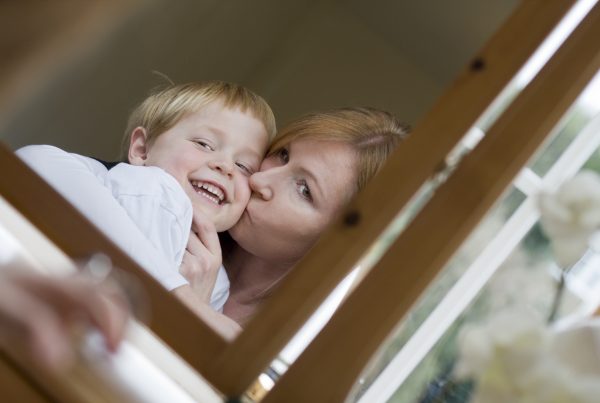Celebrity separations like with Brad Pitt and Angelina Jolie due to “parenting differences” reminds us of how co-parenting can make or break your relationship and impact the children. If you and your partner parent differently, it likely causes upset because you want to parent as a team. It’s bad enough that it hurts the friendship and intimacy, but worse when you can see it’s starting to affect your child. Learning how to get the parenting on track for your children and the relationship will strengthen your relationship with your partner and create a healthier environment for your child.
Optimal Parenting Style
Optimal parenting is when both parents have an Authoritative parenting style. That means they calmly communicate expectations and potential consequences. When it comes to parents following through, it is often done calmly and methodically. Positive behavior is rewarded and bad behavior gets consequences without further negativity. This breeds security and confidence in a child, helping to build a healthy degree of self-esteem.
Different Parenting Styles
It’s common for a couple to have different parenting styles. Coming from different families, it makes sense they would have grown up with different rules on how to parent:
“A former nanny has reported that Angelina Jolie was a “lonely toddler” whose isolation and tough family situation “did some damage.” In interviews she talks about her mother as her “best friend.”
Brad Pitt’s former pastor reports that his childhood was strict and religious with conservative parents who are devout Mid-Western Baptists. “
If one partner’s family was stricter (authoritarian-style), believing children should follow all the rules all the time, and the other partner grew up in a lenient family environment believing that children should be free to explore (permissive-style), this is where the problems arise. The strict parent sees the other parent “letting the child off the hook” and they get even stricter. The more permissive parent sees their partner getting “too harsh,” so they become even more permissive. The tug of war impacts children as they play parents against each other. It also decreases the intimacy and breeds resentment.
Re-Define the Goals
Do you want a true partnership and to raise healthy kids? If you are in this tug of war, acknowledge to each other that you need to strengthen the middle ground. Anything too extreme is not going to go well. For example, if you want to improve your child’s listening skills and strengthen the partnership between you, then the only option is to re-write one rule that is flexible enough to reach your goals and a middle ground that will not be extreme in any direction.
Re-Write the Parenting Rules
Parenting rules are hidden in the form of If/Then statements. Old rules often show good intentions, but when they are not working you can see consequences. For example:
Old rule: If the child is compliant, then I’m getting respect and I feel calm. If they are not compliant, then I need to yell to get compliance or they’ll win by disrespecting me and I will feel weak.
There’s a good intention here to teach compliance and respect – the consequences are that the parent cannot be calm or feel good without the compliance. Unfortunately, this not only puts the child in control but can trigger a more lenient partner.
New rules are flexible and do not have big consequences. For example:
If my child listens, then I’m parenting well and I feel calm. If my child is not listening, I follow through on planned consequences and I’m still a good parent. I am STILL calm because they are learning.
The new rule does not get the child off the hook and lets the child pay the price; not the parents in their relationship.
Experiment & Back-up
The rules you create together need to be experimented with. Agree on goals and develop ahead of time natural rewards/consequences for each child. Though it’s a work in progress, agree to support each other in front of your child while testing out these new parenting philosophies and back each other up even if that means not just interfering between your partner and child (assuming everyone is safe of course). Debrief about it together behind closed doors and revise what is needed for next time.
Summary
When parenting styles are different, it can teach a child to be flexible, preparing them to adjust with future teachers, bosses, and partners, but if not handled correctly, it can lead to divorce and a divided family. It’s important to envision the family you both desire, you can write out goals and collaborate on rules to get there. Remember that your partner developed their parenting style from their family and they use it with good intentions even though it may need some rule revisions.


